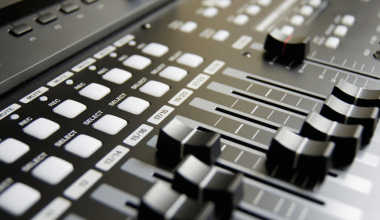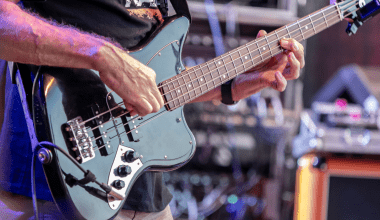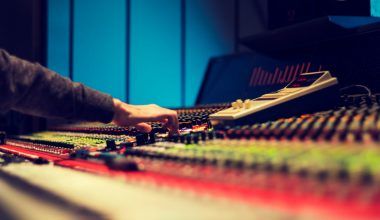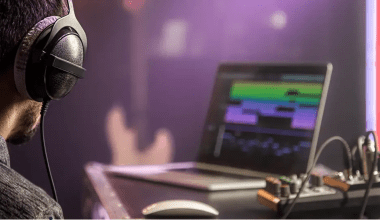If you’ve ever dreamed of making your own music but didn’t know where to start, don’t worry—you’re not alone. Whether you want to compose songs, produce beats, or simply explore your creative side, finding the right tools can make all the difference. The good news? There’s a ton of music software designed specifically for beginners! These tools are easy to use, budget-friendly, and packed with features to help you get started. In this blog, we’ll dive into the best music software for beginners, breaking down what makes each one special.
Why Choosing the Right Music Software Matters
Starting your music journey can feel overwhelming, especially when faced with complex tools that professionals use. That’s why picking beginner-friendly software is so important. The right program will:
- Be intuitive and easy to navigate.
- Offer features that match your goals, whether it’s recording, editing, or producing music.
- Grow with you as your skills improve.
Now, let’s explore the best options available!
1. GarageBand: A Beginner’s Dream Tool
If you own a Mac, GarageBand should be your go-to. This free music software is perfect for beginners. Its clean interface and drag-and-drop features make it super easy to use. Plus, it comes preloaded with loops, instruments, and effects to help you start creating right away.
Key Features:
- Built-in lessons for learning instruments like guitar and piano.
- Over 100 virtual instruments and drum kits.
- Ability to record and edit multiple tracks.
Why It’s Great for Beginners:
GarageBand’s simplicity is its biggest strength. You don’t need prior experience to create professional-sounding tracks. It’s also compatible with iPhones and iPads, so you can create music on the go.
2. FL Studio: From Beginners to Pros
FL Studio is another fantastic choice, especially if you’re interested in electronic music or beat-making. Though it offers advanced features, its beginner-friendly layout ensures you’re not overwhelmed.
Key Features:
- Pattern-based music production.
- Huge library of virtual instruments and samples.
- Lifetime free updates.
Why It’s Great for Beginners:
FL Studio’s step sequencer lets you create beats effortlessly. Plus, its vibrant interface makes learning fun.
3. Audacity: Simple and Free
Audacity is a free, open-source software that’s perfect for recording and editing audio. It’s lightweight and easy to install, making it a favorite among beginners.
Key Features:
- Multi-track audio editing.
- Tons of plugins for added functionality.
- Simple recording features for vocals and instruments.
Why It’s Great for Beginners:
Audacity’s no-frills approach focuses on the basics. It’s a great starting point for anyone who wants to understand audio editing without distractions.
4. Ableton Live Lite: Start Small, Dream Big
Ableton Live Lite is a scaled-down version of Ableton Live, one of the most popular music production tools. While it has fewer features, it’s perfect for beginners.
Key Features:
- Intuitive clip-based workflow.
- Ideal for live performances and music production.
- Comes bundled with various MIDI controllers.
Why It’s Great for Beginners:
Ableton Live Lite helps you understand the basics of music production while leaving room to grow into the full version as your skills improve.
5. LMMS: Free and Open Source
LMMS (Linux MultiMedia Studio) is a great free alternative for beginners who don’t want to invest in paid software right away. It’s available for Windows, macOS, and Linux.
Key Features:
- Supports MIDI keyboards.
- Comes with built-in instruments and samples.
- Easy-to-use piano roll editor.
Why It’s Great for Beginners:
The community support and tutorials make LMMS beginner-friendly. Plus, it’s completely free, so you can experiment without pressure.
Tips for Choosing the Best Music Software for Beginners
- Identify Your Goals: Are you looking to record vocals, create beats, or produce full tracks? Knowing what you want will help narrow down your options.
- Consider Your Budget: While free software is great, investing in a beginner-friendly paid tool can unlock more features.
- Explore Tutorials: Many programs come with built-in tutorials or online guides to help you get started.
- Test the Waters: Most paid software offers free trials. Take advantage of these to find the best fit for your needs.
Final Thoughts
Starting your music journey doesn’t have to be complicated. With the right music software, you can turn your ideas into reality in no time. Whether you choose GarageBand for its simplicity, FL Studio for its versatility, or Audacity for its affordability, there’s something for everyone. Remember, the best music software for beginners is the one that feels right for you. So, dive in, explore, and start creating—the world is waiting to hear your music.
For further reading, explore these related articles:
- How to Upload Sound on TikTok: The Complete Guide
- How to Make Your Own Music Video: A Step-by-Step Guide
For additional resources on music marketing and distribution, visit DMT Records Private Limited.






